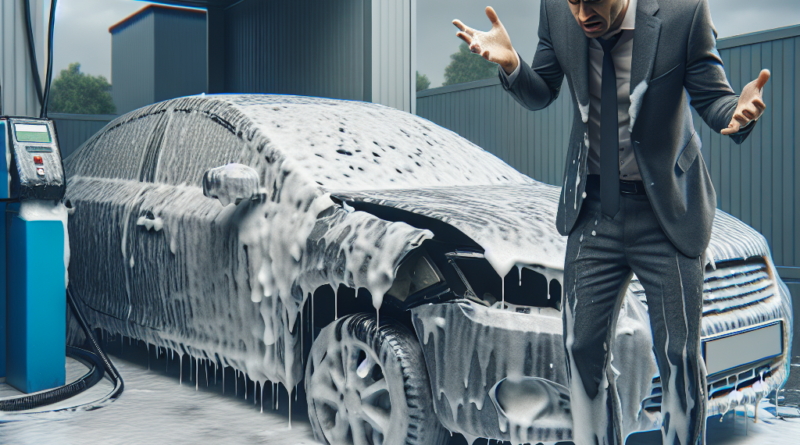Man Creates Chaos at Self-Service Car Wash: Here’s What Went Wrong
The Innovation of Self-Service Car Washes
The self-service car wash has revolutionized vehicle maintenance, allowing everyone to wash their car anytime, day or night, for just a few euros using professional-grade tools.
However, washing a car must be done correctly to avoid damaging it, particularly when it comes to cleaning the engine bay.
If mishandled, this operation can lead to serious issues.
Engine Bay Cleaning: The Right Approach
Cleaning your car’s engine bay is not only permitted but recommended when done properly.
That said, it is essential to approach this task with caution.
Numerous online accounts reveal that drivers have faced difficulties starting their vehicles after washing the engine.
In most cases, the problem stems from electrical components because high-pressure water can seep into sensitive electronic parts.
Experts advise covering the alternator and electrical components, such as the fuses, with a plastic sheet before washing.
Avoid spraying water directly into fuse boxes, alternators, or electrical connections.
Pre-treating dirty areas with a degreaser can also be beneficial since using it undiluted will enhance its effectiveness, requiring less water overall.
It is crucial to ensure the engine is cool before starting, as hot surfaces can cause detergents to dry quickly and damage the engine.
Using a garden hose for rinsing, rather than a high-pressure washer, offers better control over the water spray.
After washing, drying all parts thoroughly is essential.
Utilizing air or a small leaf blower can help dry harder-to-reach crevices.
Make sure everything is dry before attempting to start the vehicle again.
Why Your Car Won’t Start After Engine Washing
The engine compartment is mostly sealed with gaskets that protect it from external water.
However, electric issues are usually the reason behind an unreponsive vehicle post-cleaning.
Older cars, particularly those manufactured before 1999, generally have fewer electronic components, making them easier and safer to wash.
In contrast, vehicles made after 1999 are likely to have electronic fuel injection systems, which can lead to more expensive problems if cleaned improperly.
What to Do If Your Car Won’t Start
If your vehicle fails to start after washing the engine, refrain from forcing it; doing so may damage the ECU.
First, thoroughly dry all components to prevent moisture intrusion.
Check the fuse box located on the right side of the engine bay.
Inspect all fuses to ensure they are intact; water contact may have caused a short circuit, blowing a fuse.
Replace any blown fuses and attempt to start the vehicle again.
If the problem persists, it is advisable to consult a mechanic for further diagnosis.
For more tips on car maintenance, visit Car Facts.




